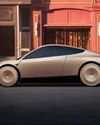In the run-up to FAME II, Niti Aayog Vice Chairman Rajiv Kumar, in a conversation with BW Businessworld’s Suman K. Jha, asserts that electric vehicles are the future, and that the industry and the government should work together to make it happen.

Do you thinks electric vehicles (EVs) are the future?
Absolutely. One should be talking about the new model of mobility, which is shared mobility, connected mobility and mobility driven by intermodal mobility which makes maximum use of digital communications, GPS and so on. There are basically three objectives, i.e. to minimise carbon footprint, to maximise public welfare and ease of living, and to generate maximum jobs and growth. Just like the Internet and the chip before that, I think mobility is in that genre of disruption. We should not focus on personal or individual mobility in the EV space, but more on public transport.
You have already suggested that 40 per cent of personal and public transport should have zero emission by 2030? Do you think that is possible?
Yes, but it will not happen by itself. We have to make maximum efforts for it. The government and industry must work closely together to make it happen.
Do you think public transport should be accorded priority while going for electric mobility?
Yes, absolutely. Public transport means not just buses but also three-wheelers and smaller vans. It also includes railways and waterways. We have this great opportunity to try and move away from the US model of mobility, which is the personal transport model — there are 786 cars per 1,000 families in the US while we have 18 or 20 cars per 1,000 families. Here is our chance to move away from that model so that we can propagate among people not to own a vehicle but to own a ride. We have to make the public ride as comfortable, or even more comfortable than a personal ride.
In the personal transport space, don’t you think two-wheelers should also be promoted?
This story is from the {{IssueName}} edition of {{MagazineName}}.
Start your 7-day Magzter GOLD free trial to access thousands of curated premium stories, and 9,000+ magazines and newspapers.
Already a subscriber ? Sign In
This story is from the {{IssueName}} edition of {{MagazineName}}.
Start your 7-day Magzter GOLD free trial to access thousands of curated premium stories, and 9,000+ magazines and newspapers.
Already a subscriber? Sign In

MEMORIES & IMPRESSIONS
Ratan Tata was an exceptional human being. He was a visionary leader, esteemed industrialist, and a humanitarian, who left an indelible mark on India and the world.

The Robotaxi Market
The robotaxi market is shaping up to be a high-stakes battleground as tech giants and automakers race to transform urban mobility.

And the Nobel Prize Goes to AI
The recent Nobel Prize T awards to AI pioneers affiliated with Google have sparked a broader conversation about Big Tech's influence on research and the limitations of traditional prize categories.

Ola Electrified
Once considered a trailblazer in India’s electric vehicle (EV) ecosystem, Bhavish Aggarwal’s Ola Electric now faces a major accountability crisis.

Sharp Slide in Industrial Output on Eve of Deepavali
India’s index of industrial production (IIP) saw a sharp reversal in August, contracting by 0.1 per cent, in stark contrast to the 4.7 per cent growth in July, mostly because of significant contractions in mining and electricity generation.

Heralding the Solar Era with Sustainable Electrification
RAJEEV KASHYAP on the economics of solar power, the hurdles in scaling it, and much more

A WELL-GREASED MACHINE
The OmniBook X14 laptop runs on first-generation Snapdragon X Elite, which bets big on Al-enabled productivity and battery life, but falls short when it comes to overall experience, says Deep Majumdar

DO NOT LETA HEALTH CRISIS RUIN YOUR FINANCIAL HEALTH
For a family of four living in a metro, it is recommended to opt for a family floater health insurance plan with a sum insured of at least Rs 15-20 lakh

Disruption Ahead: Beyond Organisation Charts and Structures
ALBERT EINSTEIN FAMOUSLY said, “We cannot solve our problems with the same thinking we used when we created them.

Dr. Rahul Shivajirao Kadam: A Visionary Leader Blending Sustainability, Innovation, And Social Empowerment
We are on the stage of global warming, and these technologies not only help prevent further damage but also leave behind a better environment for future generations.